Mustang (2015): for freedom and against tradition | por la libertad y contra la tradición
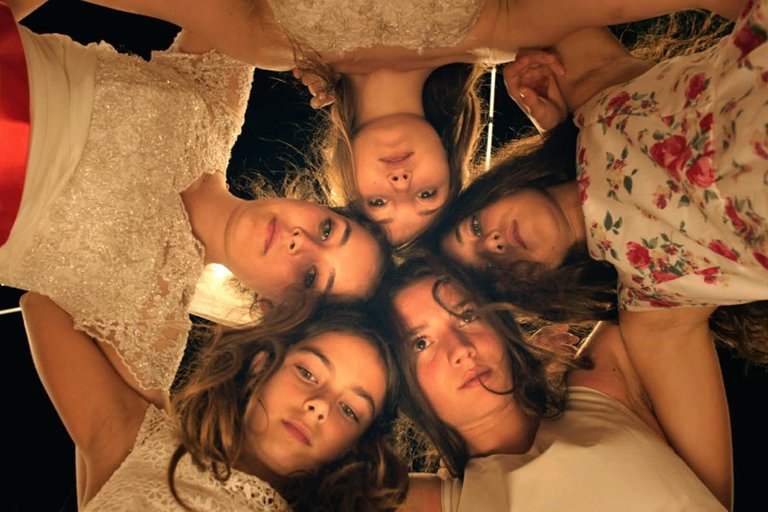
Dirigida por Deniz Gamze Ergüven
A pesar de la oferta cada vez mayor de las plataformas de streaming y de los estrenos que inundan nuestras carteleras con superhéroes, comedias románticas y productos típicos y repetidos del cine occidental (aunque claro que hay buenas excepciones), sigo prefiriendo las historias procedentes de los rincones más lejanos del mundo y esta película es un claro ejemplo de por qué me gusta tanto el cine internacional.
Mustang is a co-production between France, Turkey and Germany, directed by Deniz Gamze Ergüven and written by her together with Alice Winocour. Set in present-day Turkey, the film follows the lives of five orphaned teenage sisters who live with their grandmother and uncle. With an age range that is not mentioned, but I estimate between 10 and 17 years of age, the girls, from oldest to youngest, are Sonay, Selma, Ece, Nur and Lela. They all go to the same school and after school they go for a walk, go to the beach, play together and with other classmates, in short, the same thing that many of us did at that age when we began to leave childhood behind and we were not yet adults. But it is a different society from what we are used to seeing on this side of the world and life in this small Turkish town is turned upside down because when they see them play on the beach with some boys, the sisters are accused of immorality, their behavior is condemned and then their grandmother and uncle decide to take action about it: marry them off.
Mustang es una coproducción entre Francia, Turquía y Alemania, dirigida por Deniz Gamze Ergüven y escrita por ella junto a Alice Winocour. Situada en la Turquía actual, la película sigue la vida de cinco hermanas adolescentes, huérfanas, que viven con su abuela y un tío. Con un rango de edad que no se menciona, pero que calculo entre los 10 y los 17 años de edad, las chicas, de mayor a menor, son Sonay, Selma, Ece, Nur y Lela. Todas acuden al mismo colegio y después de clases se dedican a pasear, ir a la playa, jugar juntas y junto a otros compañeros, en fin, lo mismo que muchos de nosotros hicimos a esa edad en la que comenzamos a dejar atrás la niñez y aún no éramos adultos. Pero se trata de una sociedad diferente a lo que estamos acostumbrados a ver de este lado del mundo y la vida en este pequeño pueblo turco se ve trastornada porque al verlas jugar en la playa junto a unos chicos a las hermanas se les acusa de inmoralidad, se condena su comportamiento y entonces su abuela y su tío deciden tomar medidas al respecto: casarlas.
So they literally confine them to their house, from which they never leave, and begin to train them to become wives. Sonay and Selma are almost coming of age, but they are still very young (not to mention the other three); however, it is very common in this type of culture for marriages to be arranged with such young girls, which is why this is the solution that their relatives see to end the problem of unwanted behavior.
Así que literalmente las recluyen en su casa, de la cual no vuelven a salir, y comienzan a entrenarlas para convertirse en esposas. Sonay y Selma casi rozan la mayoría de edad, pero siguen siendo muy jóvenes (ni hablar de las otras tres); sin embargo, es muy común en este tipo de culturas que se concerten lo matrimonios con muchachas tan jóvenes, razón por la cual esa es la solución que ven sus familiares para acabar con el problema de un comportamiento no deseado.
There is a widely accepted idea that people should marry for love. In reality, there are many marriages, anywhere in the world, that take place for different reasons, but our eyes (educated under certain ideals) are alarmed when two people decide to unite their lives forever for a reason other than a deep and mutual feeling as love is. That's why any imposed marriage causes us revulsion or at least disgust, how can it make us feel that they want to impose such relationships on five girls? Can a practice that is part of a culture be condemned if it's considered as inappropriate? where are the limits? who writes these limits? How can you respect a belief if its practice violates universal human values? These are just some of the things that can be reflected on from the situation of these sisters that each one will experience in their own way.
Existe la idea ampliamente aceptada de que las personas deben casarse por amor. En la realidad existen muchos matrimonios, en cualquier parte del mundo, que se concretan por distintas razones, pero nuestros ojos (educados bajo ciertos ideales) se alarman cuando dos personas deciden unir sus vidas para siempre por un motivo diferente a un sentimiento profundo y mutuo como lo es el amor. Es por eso que cualquier matrimonio impuesto nos causa repulsión o al menos disgusto, ¿cómo puede hacernos sentir que quieran imponer ese tipo de relaciones a cinco niñas? ¿se puede condenar una práctica que es parte de una cultura si se considerada inapropiada? ¿dónde están los límites? ¿quién escribe estos límites? ¿cómo se puede respetar una creencia si su práctica atenta contra valores humanos universales? Son apenas algunas de las cosas que se pueden reflexionar a partir de la situación de estas hermanas que cada una vivirá a su manera.
Sonay marries a boy she loved, but Selma didn't know her husband before the marriage proposal. From then on, the three youngest live terrified with the day it will be their turn. Ece, submissive at first, will categorically rebel against the decision, as will Nur at the last moment. But it is Lela, the youngest, who participates as the main narrator of the story and who has an established plan that is difficult to achieve from the beginning: she wants to escape to Istanbul, how can a ten-year-old girl escape from a fenced and barred house and make the thousand kilometer journey to that enormous city? It is one thing to want it, to think about it and another thing is to be able to achieve it. It is natural for the viewer to side with her, to want to see her run away, but when they see that they raise the perimeter of the house, that the girls stop going out (they don't even go to school), that they put bars on the windows and as the house becomes an increasingly stifling prison, there seems to be no way out for any of the sisters, not even for the rebellious Lela.
Sonay se casa con un chico al que quería, pero Selma no conocía a su esposo antes de la petición de mano. A partir de allí, las tres más pequeñas viven aterradas con el día en que sea su turno. Ece, sumisa al principio, se rebelará contra la decisión de una manera categórica, como también lo hará Nur en el último momento. Pero es Lela, la menor, quien participa como narradora principal de la historia y quien tiene desde el principio un plan establecido difícil de conseguir: quiere escapar a Estambul, ¿cómo puede una niña de diez años escapar de una casa cercada y enrejada y hacer el viaje de mil kilómetros hasta esa enorme ciudad? Una cosa es desearlo, pensarlo y otra diferente es poder conseguirlo. Es natural que el espectador se ponga de su parte, que quiera verla huir, pero cuando se ve que elevan el perímetro de la casa, que las niñas dejan de salir (ni siquiera van a la escuela), que ponen rejas en las ventanas y que la casa se convierte en una prisión cada vez más asfixiante, no parece haber salida para ninguna de las hermanas, ni siquiera para la rebelde Lela.
In several aspects the film reminded me of The Virgin Suicides because it is also five sisters whose relatives lock up for reasons of immorality. But the differences that exist from there show how the social, cultural and religious context can condition people's lives. Mustang is a feminine and feminist film, not only because the story revolves around the condemnation of the freedom of a group of girls, but also because it shows messages about that archaic role of women in more traditional cultures and it's also a story written, directed and acted mainly by women. The title-content relationship is obvious and I loved it, just as I loved this film and highly recommend it. I sincerely believe that you have to see less Hollywood, less Netflix, less Marvel, and look towards other latitudes, towards other types of cinema and towards stories like this, have any of you seen this film? what did you think? I read you in the comments.
En varios aspectos la película me recordó a The Virgin Suicides porque son también cinco hermanas cuyos familiares encierran por causas de inmoralidad. Pero las diferencias que hay a partir de allí muestran cómo el contexto social, cultural y religioso puede condicionar la vida de las personas. Mustang es una película femenina y feminista, no sólo porque la historia gira en torno a la condena de la libertad de un grupo de chicas sino porque muestra mensajes sobre ese arcaico papel de la mujer en las culturas más tradicionales y además es una historia escrita, dirigida y actuada principalmente por mujeres. La relación título-contenido es obvia y me encantó, así como me encantó también esta película y la recomiendo ampliamente. Creo sinceramente que hay que ver menos Hollywood, menos Netflix, menos Marvel, y volver la mirada hacia otras latitudes, hacia otro tipo de cine y hacia historias como esta, ¿alguno de ustedes vio esta película? ¿qué les pareció? Los leo en los comentarios.
Reviewed by | Reseñado por @cristiancaicedo
Other posts that may interest you | Otros posts que pueden interesarte:
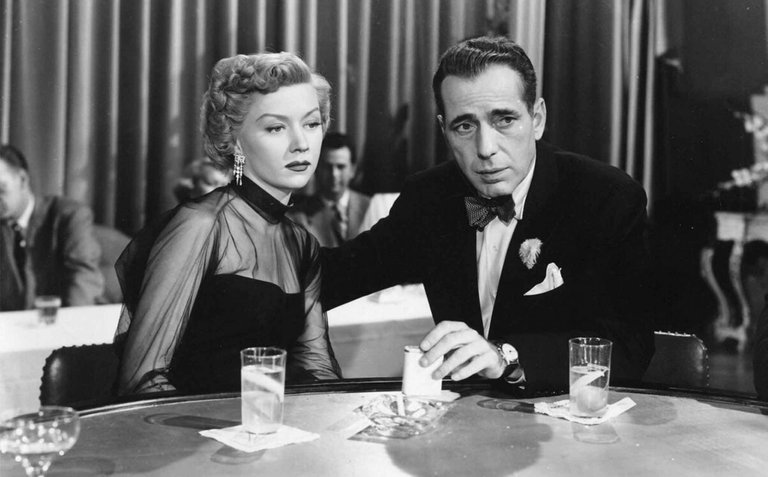  |
|---|
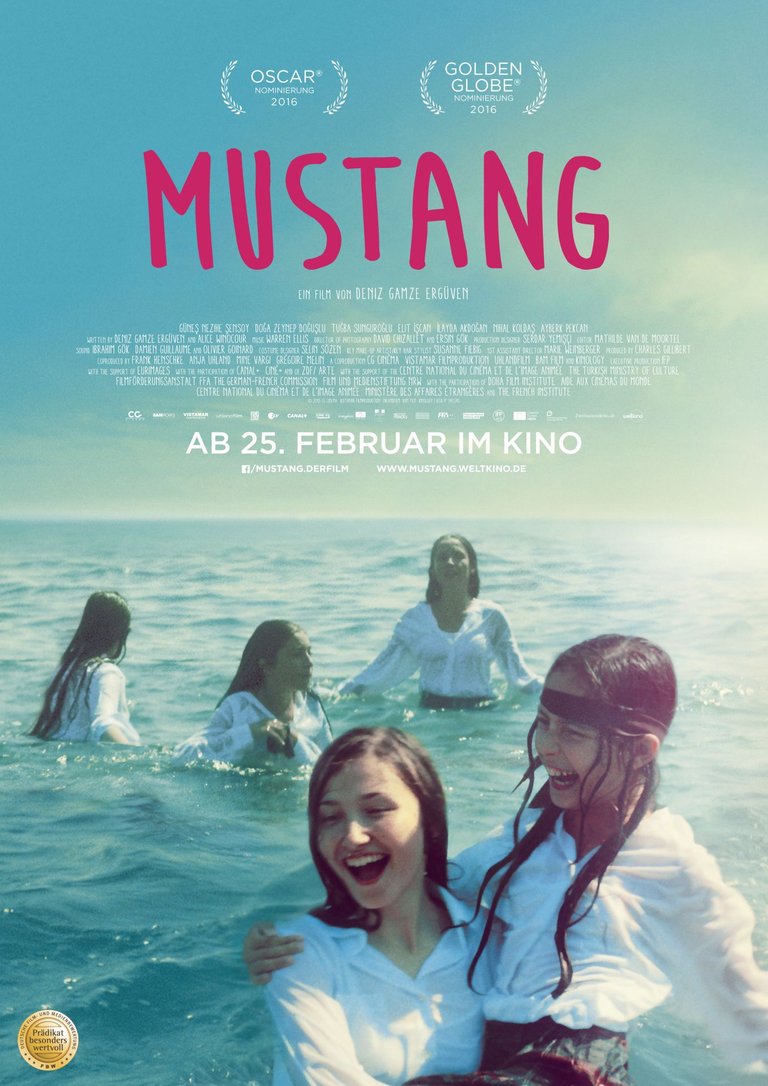
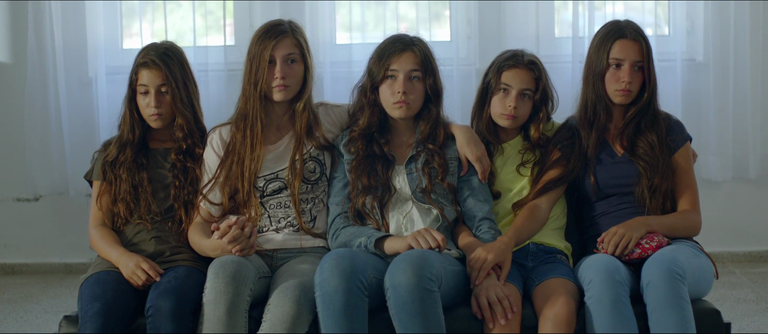

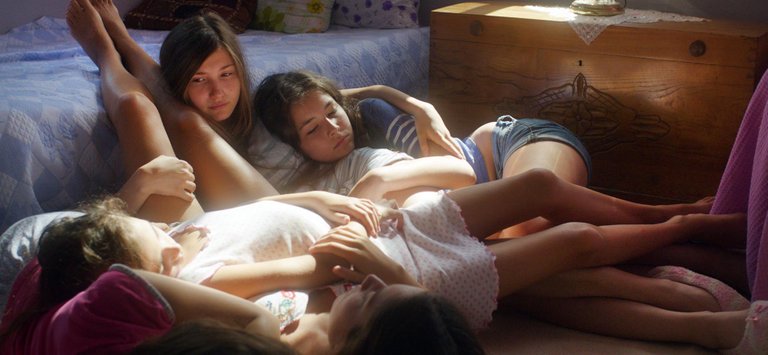

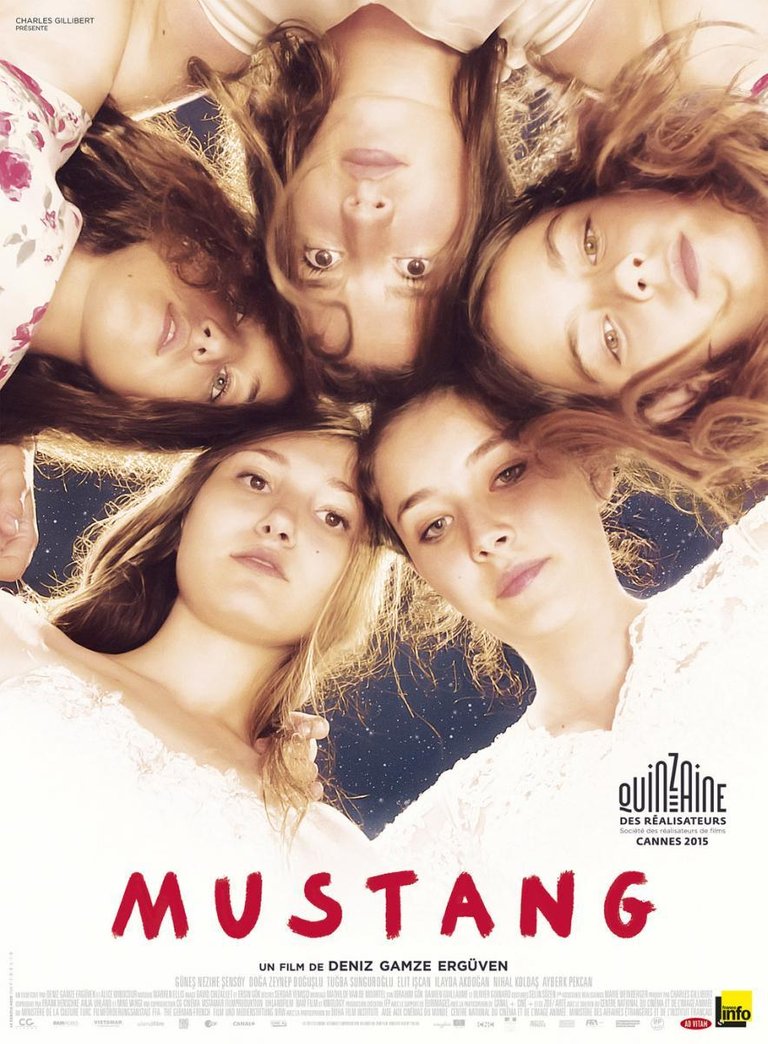
Vi este filme hace un tiempo y recuerdo que me impactó bastante, muchas veces el cine internacional es una ventana a otras culturas y está es una de las amargas virtudes de Mustang, la relación entre estas muchachas está muy bien llevada y es fácil sufrir por la lamentable (pero realista) situación en la que se encuentran.
Totalmente de acuerdo. Como dijo Bong Joon-ho, una vez que se supera esa barrera de una pulgada de altura de los subtítulos uno puede tomar contacto con muchas películas maravillosas. Saludos y gracias por leerme.
Esta película es increíblemente dura pero está tan bien lograda, es una crítica dura a una realidad que afrontan muchas mujeres. Excelente review :)
Sí, lo es. Muchísimas gracias por tomarte el tiempo de leerme y comentar. Saludos.